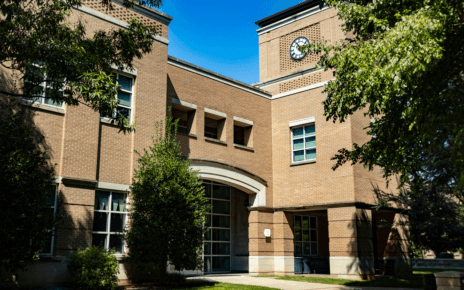A recent study by Kaplan Test Prep has found that 41 percent of law school admission officers perform a Google search of their applicants before admission, while 37 percent use Facebook to check out a potential student. This is compared to 20 percent of college admissions officers and 27 percent of business school admissions officers.
Jeff Thomas, Director of prelaw programs at Kaplan Test Prep, says this is justifiable behavior for the admission process.
“Despite jokes and negative stereotyping of lawyers, the reality is that the legal community takes ethics among its members very seriously,” Thomas said. “You not only have to be accepted to a state bar to practice law, but once you are admitted, unethical behavior can lead to your disbarment, stripping you of your ability to practice.”
Greg Borderlon, prelaw advisor, said law school applicants should be very cautious as to what they post on Facebook both at the time of application to law schools and during the time that bar authority character and fitness investigations are underway, as early as the first year of law school. “Many students have a false sense of security relying on privacy settings within the program itself and often do not realize that unprotected third-party communications can be used if discovered. There is, for the most part, no constitutional right to privacy in social networking postings. The bottom line is, if you don’t want potential law schools to see it, don’t put it up or be tagged doing it,” Borderlon said.
Thomas added, “Not many other professions have that kind of enforceable code of conduct, so it’s natural that law schools screen more stringently and more often.”
From that 41 percent of Googling admissions officers, an astonishing 32 percent of them found something which has negatively had an impact on an applicant and their admission chances. But is it just law schools who are screening their applicants? In fact, many other students who have graduated in the past year have realized potential employers will also look them up on Facebook.
“I had to change my name on Facebook,” admitted alumnus Jess Limatola. “I was an education major, and you don’t want school districts to find embarrassing pictures or stupid status updates about being at a party. The same goes for future students; I don’t want them to know, either, and you know everyone is on Facebook.”
Many people have been complaining recently about the lack of privacy Facebook offers its users.
“It’s inevitable [that] an employer [will] look you up. Facebook is just there with everyone we know using it,” said Jamie Barnao, a junior. “It isn’t going away any time soon. I think it’s an invasion of my privacy, but, at the same time, I would probably Google someone or look them up on Facebook if I were going to be their boss. Most people do it now just when they’ve met someone new.”
“While admissions is based on high LSAT scores, strong GPAs and compelling personal statements, an overarching theme to the entire application is whether an applicant is able to exercise good judgment,” Thomas said. “Clearly, an applicant’s digital trail can be an indicator of whether or not he or she possesses that quality.”



